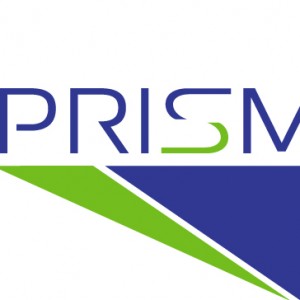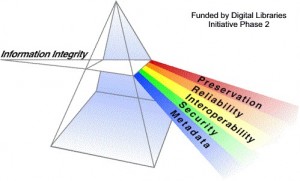Dark days ahead for the privacy of New Zealanders? Pat Pilcher is worried.
 WHAT A DIFFERENCE a few days can make. Take the word ‘prism’. It used to mean an optical widget for splitting light into its constituent colours. Now, as the US government wipes egg off of its face, the name has taken on far more sinister overtones as revelations about the US government spying on its own citizens and others around the world come to light.
WHAT A DIFFERENCE a few days can make. Take the word ‘prism’. It used to mean an optical widget for splitting light into its constituent colours. Now, as the US government wipes egg off of its face, the name has taken on far more sinister overtones as revelations about the US government spying on its own citizens and others around the world come to light.
The brown stuff started hitting the US intelligence communities’ fan as the Washington Post and the Guardian published bombshells stories around a covert project codenamed PRISM.
Prism was a joint effort between the National Security Agency (NSA), and the Federal Bureau of Investigation (FBI), whose tentacles are into nearly every US tech company you’ve probably ever heard of.
Prism supposedly ran in secrecy for six years, kicking off in 2007. Originally intended for monitoring foreign communications passing through US servers, it has since morphed into something far more sinister.
 Perhaps the most disquieting thing about Prism is its sheer reach. Over its six year lifespan, Prism gave the NSA access to the servers of major tech companies in the US, supposedly including Microsoft, Google, Skype, Apple… the list goes on and on.
Perhaps the most disquieting thing about Prism is its sheer reach. Over its six year lifespan, Prism gave the NSA access to the servers of major tech companies in the US, supposedly including Microsoft, Google, Skype, Apple… the list goes on and on.
US tech companies were given a mandate from the US government to provide access to their servers to the FBI who copied vast amounts of what is euphemistically being called metadata (that is not the actual recorded contents of phone calls but the time the call was made, its duration and who called who), relaying it to the NSA.
Eerily, Prism also echoes a lot of what is starting to happen in New Zealand.
The NSA was by law only allowed to monitor foreign communications, but seems to have been snaffling vast amounts of information from US tech companies.
Arguably, much of that information was also generated by US citizens communicating with other US citizens, regardless of the denials taking place.
So, should we be worried about prism? It is happening far away in the US right?
Worryingly, changes being made to the GCSB Act of 2003 and the Telecommunications Interception Capability Act of 2004 gives the New Zealand government even more access to New Zealanders’ data than prism.
 Although there has always been lawful interception which allows the government the (via the GCSB, Police or SIS) the ability to intercept all NZ telecommunications, provided they had a valid warrant, the new Telecommunications Intercept Capability Bill will see the surveillance net widening to cover service providers such as internet providers, online forums such as Trademe and Mega.
Although there has always been lawful interception which allows the government the (via the GCSB, Police or SIS) the ability to intercept all NZ telecommunications, provided they had a valid warrant, the new Telecommunications Intercept Capability Bill will see the surveillance net widening to cover service providers such as internet providers, online forums such as Trademe and Mega.
Although the new laws will still require a warrant, the GCSB – who’d previously been tasked with spying on foreign nations – has now been charged with “ensuring the security of New Zealand’s telecommunications infrastructure”. In itself this expanded capability might merely be interesting, but the addition of the Government Communications Security Bureau and Related Legislation Amendment Bill also gives the GCSB three purposes which is of real cause for concern.
1) Protecting New Zealand’s communications.
2) Intelligence gathering, analysis and sharing
3) Helping the Police, SIS and Defence Force through advice and assistance when they need to execute a warrant.
In a nutshell, the powers of an organisation previously charged exclusively with spying on foreign countries has been expanded to encompass spying on New Zealanders under the guise of cyber security.
Like a lot of similar laws, even Prism, the new laws were probably drafted out of good intentions in that there was a belief that New Zealand infrastructure needed to be protected from cyber-attacks. The upshot however, is that The GCSB will now be able to spy on New Zealanders.
Prism may have generated a fair amount of outrage, but these recently drafted law changes give the GCSB complete access to New Zealand telecommunications networks. Although the new laws were drafted in the name of making “clear the statutory framework governing the activities of the GCSB”, they represent a massive and fundamental expansion of GCSB’s reach and capabilities, with little to no real changes to the amount of oversight of its activities.
What is really worrying though, is that New Zealand has been turned into a surveillance state with the flourish of a politician’s pen, and it was all largely done on the quiet. Even though no real secret was made of the law changes, the Government correctly assumed that if they wrapped the whole shebang up in dry legislative double-speak, the public wouldn’t look too closely.
Of equal concern is the probable links to the NSA and Prism in the form of a quid pro quo for sharing of data between the GCSB and US agencies such as the NSA.
So now the big question is do you want to live in a supposed democracy where where cyber protection is being used as a convenient foil for setting up a surveillance state where emails, Facebook posts, text messages, Skype sessions and Twitter comments can all be intercepted and recorded? The scope for abuse and the erosions of the freedoms we’ve all taken for granted is massive. PAT PILCHER
Can You See Light Through A Prism?

Latest from News

Let’s protect and value NZ’s media
PAT PILCHER examines the media crisis in New Zealand and what can be done to protect this essential tool to ensure the future of

Sugden Audio boss Patrick Miller RIP
The audiophile world is mourning the loss of Patrick Miller, boss of legendary hi-fi company Sugden Audio.

NZ’s first unlimited mobile plans launched by Mighty Ape
PAT PILCHER reports on what appears to be the start of a revolution for smartphone users as a new player offers unlimited calls.

Is AI about to create seismic change?
Is AI about to change life as we know it? Could it bring peace and prosperity, or will it make life hell on earth?

Media’s clickbait coverage of KiwiSaver fees shameful
When did the government-owned RNZ become a vehicle for Luxon's fatuous and unchallenged pronouncements on the KiwiSaver fees? By PAT PILCHER.





